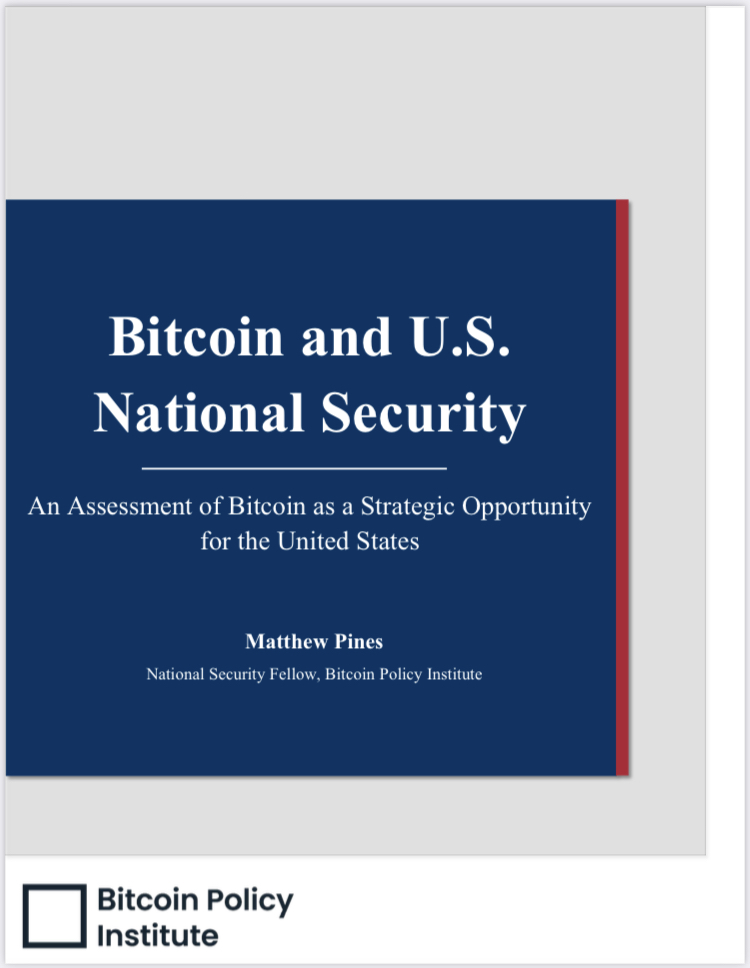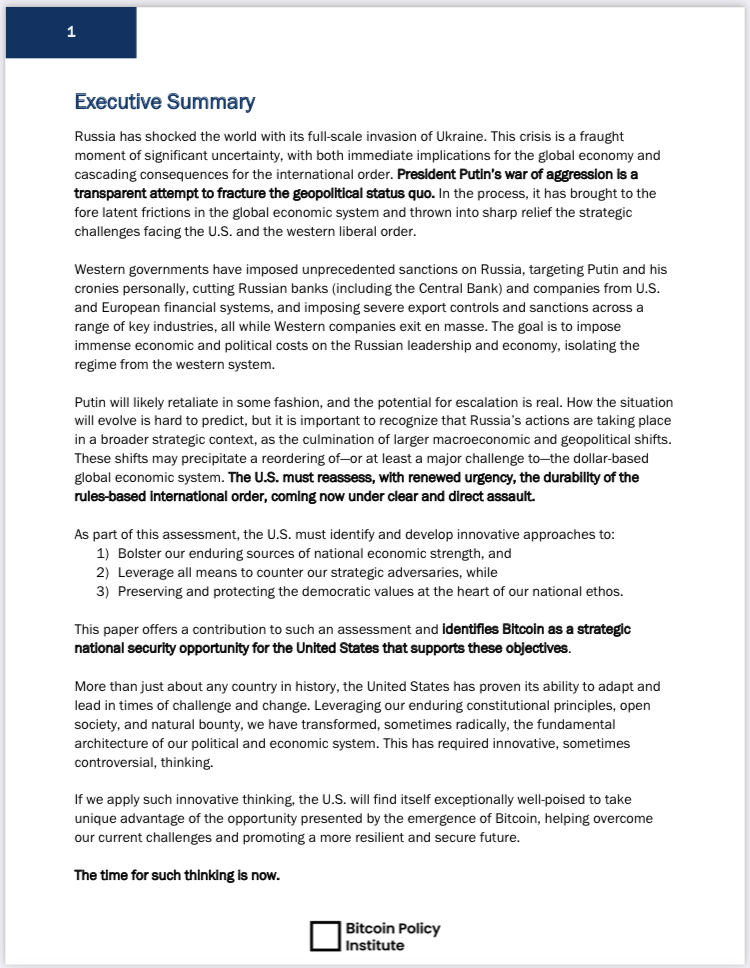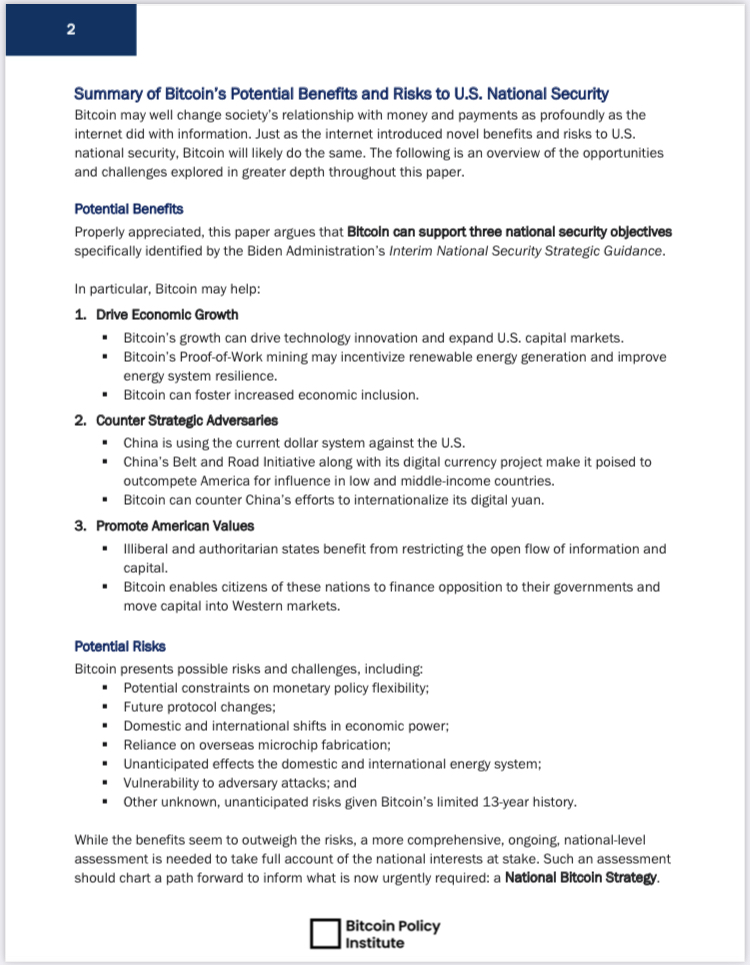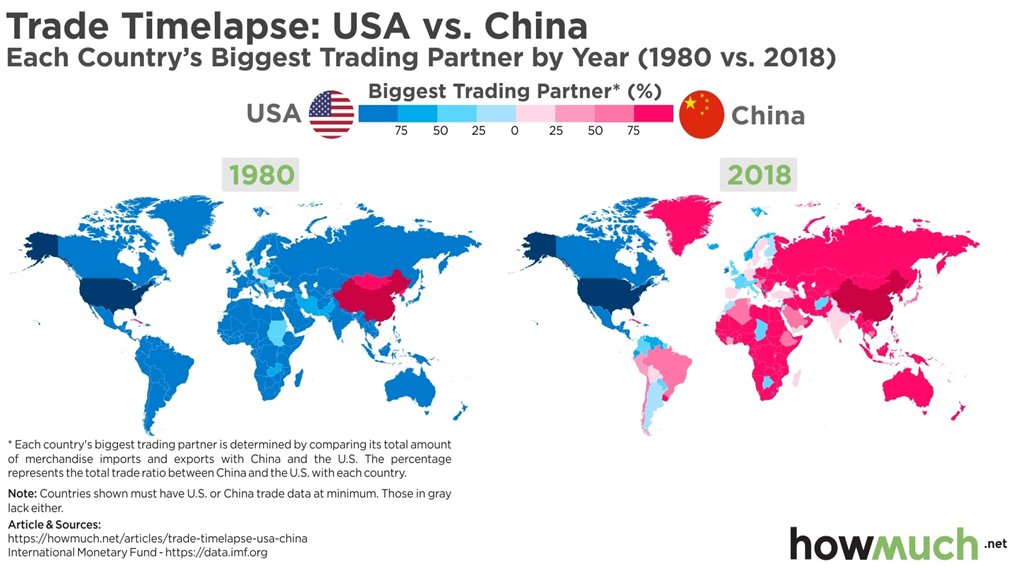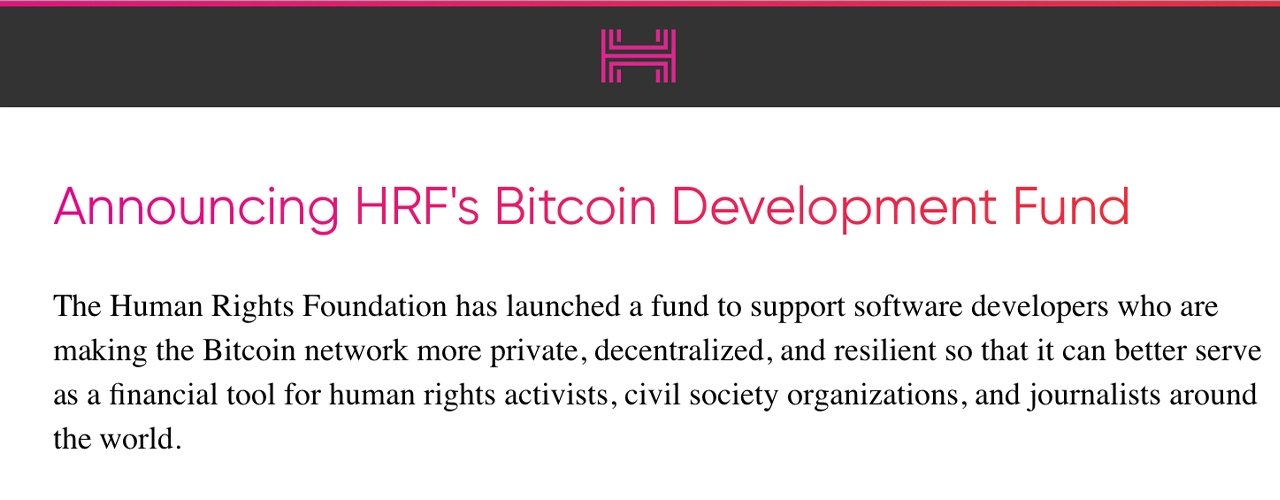Thread
At a time when geopolitical & economic shifts threaten to disrupt the global monetary order, can #Bitcoin give the U.S. a national security advantage?
The Bitcoin Policy Institute conducted an assessment of this question.
Here is what we found: 👇
#Research' target='_blank'>www.btcpolicy.org/
🧵
The Bitcoin Policy Institute conducted an assessment of this question.
Here is what we found: 👇
#Research' target='_blank'>www.btcpolicy.org/
🧵
To start, the U.S. must identify innovative approaches to:
1) Bolster enduring sources of national economic strength,
2) Leverage all means to counter our strategic adversaries, while also
3) Preserving and protecting the democratic values at the heart of our national ethos.
1) Bolster enduring sources of national economic strength,
2) Leverage all means to counter our strategic adversaries, while also
3) Preserving and protecting the democratic values at the heart of our national ethos.
Properly appreciated, BPI argues that Bitcoin can support the national security objectives identified by the Biden Administration’s Interim National Security Strategic Guidance (released MAR 2021).
Here's a summary of our analysis on how Bitcoin aligns with three key objectives:
Here's a summary of our analysis on how Bitcoin aligns with three key objectives:
1. Drive Economic Growth
- Bitcoin’s growth can drive technology innovation and expand U.S. capital markets.
- Bitcoin’s Proof-of-Work mining may incentivize renewable energy generation and improve energy system resilience.
- Bitcoin can foster increased economic inclusion.
- Bitcoin’s growth can drive technology innovation and expand U.S. capital markets.
- Bitcoin’s Proof-of-Work mining may incentivize renewable energy generation and improve energy system resilience.
- Bitcoin can foster increased economic inclusion.
2. Counter Strategic Adversaries
- China is using the current $-system against the U.S.
- China’s Belt and Road Initiative and eRMB may compete with U.S. for influence in low & middle-income countries.
- Bitcoin can counter China’s efforts to internationalize its eRMB.
- China is using the current $-system against the U.S.
- China’s Belt and Road Initiative and eRMB may compete with U.S. for influence in low & middle-income countries.
- Bitcoin can counter China’s efforts to internationalize its eRMB.
3. Promote American Values
- Illiberal and authoritarian states benefit from restricting the open flow of information and capital.
-Bitcoin enables citizens of these nations to finance opposition to their governments and move capital into Western markets.
- Illiberal and authoritarian states benefit from restricting the open flow of information and capital.
-Bitcoin enables citizens of these nations to finance opposition to their governments and move capital into Western markets.
Recent events have thrust Bitcoin into geopolitics.
The Ukrainian government has raised almost $60 million in crypto donations in two weeks, helping it purchase military supplies in the face of a brutal Russian invasion.
The Ukrainian government has raised almost $60 million in crypto donations in two weeks, helping it purchase military supplies in the face of a brutal Russian invasion.
While the Treasury Department is “not overly worried about crypto undermining the effort to choke off the Kremlin’s access to capital”, the fact that such a question is even raised shows how Bitcoin is increasingly relevant to national security and the global economy.
To date, analysis of Bitcoin’s impact on U.S. national security has been mostly limited to its connection with illicit activity.
In particular, ransomware and criminal use of cryptocurrencies drove the Justice Department to form a National Cryptocurrency Enforcement Team.
In particular, ransomware and criminal use of cryptocurrencies drove the Justice Department to form a National Cryptocurrency Enforcement Team.
Analysis shows that just 0.15% of all cryptocurrency activity in 2021 was related to crime, and Bitcoin’s very transparency gives law enforcement powerful tools to track and trace illicit activity, seizing ill-gotten gains by criminal groups and ransomware operations.
Having realized that digital assets are here to stay, the Biden Administration will shortly release an executive order directing that government agencies study cryptocurrency and develop reports on the future of money and the potential for a Central Bank Digital Currency (CBDC).
Each agency will be asked to examine the impact this new asset-class may have on their regulatory remit, law enforcement authorities, and responsibility to maintain financial stability.
It is a good step forward to coordinate a unified government approach to this issue.
It is a good step forward to coordinate a unified government approach to this issue.
While welcome, this EO is likely to be mostly administrative, focused on generating reports and recommendations for new laws, policies, and org structures.
What is missing is a whole-of-government analysis of the strategic geopolitical & macroeconomic shifts underway.
What is missing is a whole-of-government analysis of the strategic geopolitical & macroeconomic shifts underway.
These shifts may precipitate a reordering of, or at least a major challenge to, the $-based global economic system.
The U.S. must reassess, with renewed urgency, the durability of the rules-based international order premised on this economic system, now under direct assault.
The U.S. must reassess, with renewed urgency, the durability of the rules-based international order premised on this economic system, now under direct assault.
As part of this assessment, the U.S. must examine the national security benefits and risks of Bitcoin as an emerging, decentralized monetary network, digital asset, and technology platform.
We need a National Bitcoin Strategy to guide this assessment and chart a path forward.
We need a National Bitcoin Strategy to guide this assessment and chart a path forward.
It is natural for incumbents to view the systems they spent their careers building as necessary and good; to view any challenge as a threat, and innovation as a source of risk.
This is understandable at an individual level. At the level of national security, it is dangerous.
This is understandable at an individual level. At the level of national security, it is dangerous.
More than just about any country in history, the United States has proven its ability to evolve and lead in times of challenge and change.
Our enduring constitutional principles, open society, and natural bounty have allowed us to adapt our political and economic systems.
Our enduring constitutional principles, open society, and natural bounty have allowed us to adapt our political and economic systems.
This requires innovative, sometimes controversial, thinking.
If we apply such innovative thinking, the U.S. will find itself well-poised to take advantage of Bitcoin, help overcome current challenges, and promote a secure & resilient future.
The time for such thinking is now.
If we apply such innovative thinking, the U.S. will find itself well-poised to take advantage of Bitcoin, help overcome current challenges, and promote a secure & resilient future.
The time for such thinking is now.
